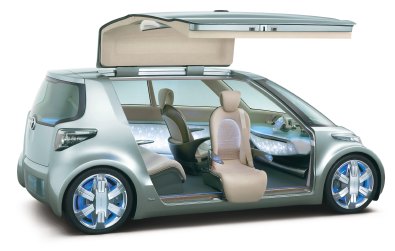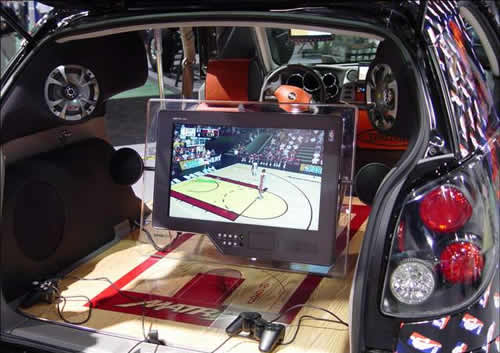Since I’ve been thinking about tangible futures and why companies should envision the future (including car companies) I thought a visit to the Auto Show here in New York was worthwhile. The biggest surprise for me was the Toyota exhibit. While I love their process, I’m usually bored with their high quality but plain cars. But their concept cars wow’d me.
I’ve been thinking about concept cars for a few years now and how they’re a good way for companies to practice foresight. Given my advocacy of Toyota’s production system and their current success, it’s very convenient to point to their concept cars as a contributor. I can’t say how much these concepts have contributed to cause, but I certainly found their differentiated concepts a compelling correlation.
Most every concept at the show this year followed this formula:
- Include a selection of next generation technologies
- Wrap them up in a pretty styled interior and exterior
As a group they were fun to look at but failed to inspire. We know certain technology is coming, we expect it. And the styling is the same thing we’ve been seeing for years. But what Toyota did was different. They asked, “What if the car was just as much about transportation as about entertainment? Then let’s design the car with an NBA theme and fill it with five video displays all hooked up to a video game console…”
And they asked, “What if the car was just as much about transportation as about socializing? Then the car should be designed as a portable lounge that puts limos to shame…”

To me this represented the difference between merely combining engineering with styling and doing experience design. Rather than merely being safer or faster or better looking, you could feel how these cars would lead to a qualitatively different automotive experience, enhancing your life in a new way. That is the power of tangible futures.


Comments
One response to “Concept car dreams”
It may be obvious to most but the design limitations of the Japanese market, including the stringent regulations that are present in that market maybe a sign for the future of metropolitan car markets worldwide. If that is the case we may see cars used more and more not only for their “mobile” trades but also for their “static” possibilities. If that is so we can finally take back all that dead space that is occupied by a parked car. Maybe here Japan will meet the NFL and Toyota will be the biggest seller of the “Tailgating-Hybird-livingroom on wheels”.